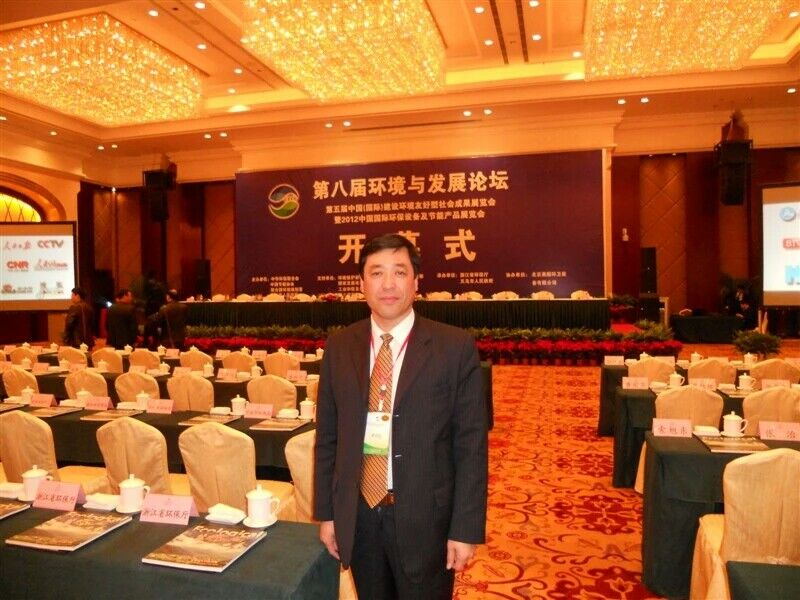Text
正文
The General Assembly,
Considering that the peoples of the United Nations have, in the Charter, reaffirmed their faith in fundamental human rights, in the dignity and worth of the human person and in the equal rights of men and women, Considering that the Universal Declaration of Human Rights asserts the principle of non-discrimination and proclaims that all human beings are born free and equal in dignity and rights and that everyone is entitled to all the rights and freedoms set forth therein without distinction of any kind, including any distinction as to sex, Taking into account the resolutions, declarations, conventions and recommendations of the United Nations and the specialized agencies designed to eliminate all forms of discrimination and to promote equal rights for men and women, Concerned that, despite the Charter of the United Nations, the Universal Declaration of Human Rights, the International Covenants on Human Rights and other instruments of the United Nations and the specialized agencies and despite the progress made in the matter of equality of rights, there continues to exist considerable discrimination against women, Considering that discrimination against women is incompatible with human dignity and with the welfare of the family and of society, prevents their participation, on equal terms with men, in the political, social, economic and cultural life of their countries and is an obstacle to the full development of the potentialities of women in the service of their countries and of humanity, Bearing in mind the great contribution made by women to social, political, economic and cultural life and the part they play in the family and particularly in the rearing of children, Convinced that the full and complete development of a country, the welfare of the world and the cause of peace require the maximum participation of women as well as men in all fields, Considering that it is necessary to ensure the universal recognition in law and in fact of the principle of equality of men and women, Solemnly proclaims this Declaration:
Considering that the peoples of the United Nations have, in the Charter, reaffirmed their faith in fundamental human rights, in the dignity and worth of the human person and in the equal rights of men and women, Considering that the Universal Declaration of Human Rights asserts the principle of non-discrimination and proclaims that all human beings are born free and equal in dignity and rights and that everyone is entitled to all the rights and freedoms set forth therein without distinction of any kind, including any distinction as to sex, Taking into account the resolutions, declarations, conventions and recommendations of the United Nations and the specialized agencies designed to eliminate all forms of discrimination and to promote equal rights for men and women, Concerned that, despite the Charter of the United Nations, the Universal Declaration of Human Rights, the International Covenants on Human Rights and other instruments of the United Nations and the specialized agencies and despite the progress made in the matter of equality of rights, there continues to exist considerable discrimination against women, Considering that discrimination against women is incompatible with human dignity and with the welfare of the family and of society, prevents their participation, on equal terms with men, in the political, social, economic and cultural life of their countries and is an obstacle to the full development of the potentialities of women in the service of their countries and of humanity, Bearing in mind the great contribution made by women to social, political, economic and cultural life and the part they play in the family and particularly in the rearing of children, Convinced that the full and complete development of a country, the welfare of the world and the cause of peace require the maximum participation of women as well as men in all fields, Considering that it is necessary to ensure the universal recognition in law and in fact of the principle of equality of men and women, Solemnly proclaims this Declaration:
大會,
鑒于聯合國人民已在憲章內重申其對基本人權、人格尊嚴與價值以及男女平等權利的信念,鑒于世界人權宣言申明不歧視原則,并宣示人皆生而自由,其尊嚴及權利均各平等,且人人皆有權享受該宣言所載的一切權利與自由,無分軒輊,包括不分性別,計及聯合國及各專門機構旨在消除一切形式的歧視及促進男女平等權利的決議、宣言、公約及建議,察及雖有聯合國憲章、世界人權宣言、關于人權的各項國際公約及聯合國與各專門機構之其他文書,雖在權利之平等方面獲有進展,而歧視婦女情事,仍數見不鮮,深感關切,鑒于歧視婦女有乖人類尊嚴及家庭與社會之福利,阻止婦女以與男女平等的條件參加其國內政治、社會、經濟與文化生活,實為充分發展婦女服務其國家與人類潛力的障礙,鑒于婦女對社會、政治、經濟及文化生活的重大貢獻及其在家庭方面,尤其在兒童教養方面所負的任務,深信一國的充分與完全發展,世界的福利及和平大業,均需要婦女與男子同樣盡量參加所有各方面的工作,鑒于在法律上與事實上均必須確保男女平等原則的普遍承認,受鄭重宣布本宣言:
鑒于聯合國人民已在憲章內重申其對基本人權、人格尊嚴與價值以及男女平等權利的信念,鑒于世界人權宣言申明不歧視原則,并宣示人皆生而自由,其尊嚴及權利均各平等,且人人皆有權享受該宣言所載的一切權利與自由,無分軒輊,包括不分性別,計及聯合國及各專門機構旨在消除一切形式的歧視及促進男女平等權利的決議、宣言、公約及建議,察及雖有聯合國憲章、世界人權宣言、關于人權的各項國際公約及聯合國與各專門機構之其他文書,雖在權利之平等方面獲有進展,而歧視婦女情事,仍數見不鮮,深感關切,鑒于歧視婦女有乖人類尊嚴及家庭與社會之福利,阻止婦女以與男女平等的條件參加其國內政治、社會、經濟與文化生活,實為充分發展婦女服務其國家與人類潛力的障礙,鑒于婦女對社會、政治、經濟及文化生活的重大貢獻及其在家庭方面,尤其在兒童教養方面所負的任務,深信一國的充分與完全發展,世界的福利及和平大業,均需要婦女與男子同樣盡量參加所有各方面的工作,鑒于在法律上與事實上均必須確保男女平等原則的普遍承認,受鄭重宣布本宣言:
Article 2
All appropriate measures shall be taken to abolish existing laws, customs, regulations and practices which are discriminatory against women, and to establish adequate legal protection for equal rights of men and women, in particular:
(a) The principle of equality of rights shall be embodied in the constitution or otherwise guaranteed by law;
(b) The international instruments of the United Nations and the specialized agencies relating to the elimination of discrimination against women shall be ratified or acceded to and fully implemented as soon as practicable.
All appropriate measures shall be taken to abolish existing laws, customs, regulations and practices which are discriminatory against women, and to establish adequate legal protection for equal rights of men and women, in particular:
(a) The principle of equality of rights shall be embodied in the constitution or otherwise guaranteed by law;
(b) The international instruments of the United Nations and the specialized agencies relating to the elimination of discrimination against women shall be ratified or acceded to and fully implemented as soon as practicable.
第二條
為廢除現行歧視婦女的法律、習俗、規章與慣例,并為男女平等權利建立適當的法律保障,應采取一切適當措施,尤應采取下列各項措施:
(甲)權利平等原則應載入憲法或另以法律加以保證;
(乙)聯合國與各專門機構關于消除對婦女歧視的國際文書應盡速批準或加入并充分實施。
為廢除現行歧視婦女的法律、習俗、規章與慣例,并為男女平等權利建立適當的法律保障,應采取一切適當措施,尤應采取下列各項措施:
(甲)權利平等原則應載入憲法或另以法律加以保證;
(乙)聯合國與各專門機構關于消除對婦女歧視的國際文書應盡速批準或加入并充分實施。
Article 4
All appropriate measures shall be taken to ensure to women on equal terms with men, without any discrimination:
(a) The right to vote in all elections and be eligible for election to all publicly elected bodies;
(b) The right to vote in all public referenda;
(c) The right to hold public office and to exercise all public functions.
Such rights shall be guaranteed by legislation.
All appropriate measures shall be taken to ensure to women on equal terms with men, without any discrimination:
(a) The right to vote in all elections and be eligible for election to all publicly elected bodies;
(b) The right to vote in all public referenda;
(c) The right to hold public office and to exercise all public functions.
Such rights shall be guaranteed by legislation.
Article 6
1. Without prejudice to the safeguarding of the unity and the harmony of the family, which remains the basic unit of any society, all appropriate measures, particularly legislative measures, shall be taken to ensure to women, married or unmarried, equal rights with men in the field of civil law, and in particular:
(a) The right to acquire, administer, enjoy, dispose of and inherit property, including property acquired during marriage;
(b) The right to equality in legal capacity and the exercise thereof;
(c) The same rights as men with regard to the law on the movement of persons.
2. All appropriate measures shall be taken to ensure the principle of equality of status of the husband and wife, and in particular:
(a) Women shall have the same right as men to free choice of a spouse and to enter into marriage only with their free and full consent;
(b) Women shall have equal rights with men during marriage and at its dissolution. In all cases the interest of the children shall be paramount;
(c) Parents shall have equal rights and duties in matters relating to their children. In all cases the interest of the children shall be paramount.
3. Child marriage and the betrothal of young girls before puberty shall be prohibited, and effective action, including legislation, shall be taken to specify a minimum age for marriage and to make the registration of marriages in an official registry compulsory.
1. Without prejudice to the safeguarding of the unity and the harmony of the family, which remains the basic unit of any society, all appropriate measures, particularly legislative measures, shall be taken to ensure to women, married or unmarried, equal rights with men in the field of civil law, and in particular:
(a) The right to acquire, administer, enjoy, dispose of and inherit property, including property acquired during marriage;
(b) The right to equality in legal capacity and the exercise thereof;
(c) The same rights as men with regard to the law on the movement of persons.
2. All appropriate measures shall be taken to ensure the principle of equality of status of the husband and wife, and in particular:
(a) Women shall have the same right as men to free choice of a spouse and to enter into marriage only with their free and full consent;
(b) Women shall have equal rights with men during marriage and at its dissolution. In all cases the interest of the children shall be paramount;
(c) Parents shall have equal rights and duties in matters relating to their children. In all cases the interest of the children shall be paramount.
3. Child marriage and the betrothal of young girls before puberty shall be prohibited, and effective action, including legislation, shall be taken to specify a minimum age for marriage and to make the registration of marriages in an official registry compulsory.
第六條
一、以不妨礙對仍為任何社會基本單位的家庭的團結與和諧所予保障為限,應采取一切適當措施,尤應采取立法措施,以確保婦女,不論已婚未婚,在民法方面享有與男子平等的權利,尤其下列權利:
(甲)取得、管理、享用、處分及繼承財產的權利,包括婚姻存續期間取得的財產在內;
(乙)法律行為能力及其行使之平等的權利;
(丙)對關于人身移動的法律與男子相同的權利。
二、為保障夫妻地位平等的原則,尤其下列各項,應采取一切適當措施:
(甲)婦女應有與男子相同的自由選擇配偶與須經其自由完全同意始得結婚的權利;
(乙)婦女在婚姻存續期間及婚姻關系消滅時,應享有與男子平等的權利。不論在何種情況下,子女的利益應居首要;
(丙)父母對于有關子女之事項,應有平等的權利與義務。不論在何種情形下,子女的利益應居首要。
三、童婚及少女在青春期前訂婚皆應禁止,并應采取有效行動,包括制訂法律在內,規定結婚最低年齡及必須在正式登記處作婚姻登記。
一、以不妨礙對仍為任何社會基本單位的家庭的團結與和諧所予保障為限,應采取一切適當措施,尤應采取立法措施,以確保婦女,不論已婚未婚,在民法方面享有與男子平等的權利,尤其下列權利:
(甲)取得、管理、享用、處分及繼承財產的權利,包括婚姻存續期間取得的財產在內;
(乙)法律行為能力及其行使之平等的權利;
(丙)對關于人身移動的法律與男子相同的權利。
二、為保障夫妻地位平等的原則,尤其下列各項,應采取一切適當措施:
(甲)婦女應有與男子相同的自由選擇配偶與須經其自由完全同意始得結婚的權利;
(乙)婦女在婚姻存續期間及婚姻關系消滅時,應享有與男子平等的權利。不論在何種情況下,子女的利益應居首要;
(丙)父母對于有關子女之事項,應有平等的權利與義務。不論在何種情形下,子女的利益應居首要。
三、童婚及少女在青春期前訂婚皆應禁止,并應采取有效行動,包括制訂法律在內,規定結婚最低年齡及必須在正式登記處作婚姻登記。
Article 9
All appropriate measures shall be taken to ensure to girls and women, married or unmarried, equal rights with men in education at all levels, and in particular:
(a) Equal conditions of access to, and study in, educational institutions of all types, including universities and vocational, technical and professional schools;
(b) The same choice of curricula, the same examinations, teaching staff with qualifications of the same standard, and school premises and equipment of the same quality, whether the institutions are co-educational or not;
(c) Equal opportunities to benefit from scholarships and other study grants;
(d) Equal opportunities for access to programmes of continuing education, including adult literacy programmes;
(e) Access to educational information to help in ensuring the health and well-being of families.
All appropriate measures shall be taken to ensure to girls and women, married or unmarried, equal rights with men in education at all levels, and in particular:
(a) Equal conditions of access to, and study in, educational institutions of all types, including universities and vocational, technical and professional schools;
(b) The same choice of curricula, the same examinations, teaching staff with qualifications of the same standard, and school premises and equipment of the same quality, whether the institutions are co-educational or not;
(c) Equal opportunities to benefit from scholarships and other study grants;
(d) Equal opportunities for access to programmes of continuing education, including adult literacy programmes;
(e) Access to educational information to help in ensuring the health and well-being of families.
Article 10
1. All appropriate measures shall be taken to ensure to women, married or unmarried, equal rights with men in the field of economic and social life, and in particular:
(a) The right, without discrimination on grounds of marital status or any other grounds, to receive vocational training, to work, to free choice of profession and employment, and to professional and vocational advancement;
(b) The right to equal remuneration with men and to equality of treatment in respect of work of equal value;
(c) The right to leave with pay, retirement privileges and provision for security in respect of unemployment, sickness, old age or other incapacity to work;
(d) The right to receive family allowances on equal terms with men.
2. In order to prevent discrimination against women on account of marriage or maternity and to ensure their effective right to work, measures shall be taken to prevent their dismissal in the event of marriage or maternity and to provide paid maternity leave, with the guarantee of returning to former employment, and to provide the necessary social services, including child-care facilities.
3. Measures taken to protect women in certain types of work, for reasons inherent in their physical nature, shall not be regarded as discriminatory.
1. All appropriate measures shall be taken to ensure to women, married or unmarried, equal rights with men in the field of economic and social life, and in particular:
(a) The right, without discrimination on grounds of marital status or any other grounds, to receive vocational training, to work, to free choice of profession and employment, and to professional and vocational advancement;
(b) The right to equal remuneration with men and to equality of treatment in respect of work of equal value;
(c) The right to leave with pay, retirement privileges and provision for security in respect of unemployment, sickness, old age or other incapacity to work;
(d) The right to receive family allowances on equal terms with men.
2. In order to prevent discrimination against women on account of marriage or maternity and to ensure their effective right to work, measures shall be taken to prevent their dismissal in the event of marriage or maternity and to provide paid maternity leave, with the guarantee of returning to former employment, and to provide the necessary social services, including child-care facilities.
3. Measures taken to protect women in certain types of work, for reasons inherent in their physical nature, shall not be regarded as discriminatory.
第十條
一、為確保婦女,不論已婚未婚,皆能在經濟及社會生活方面,享有與男子平等的權利,尤其下列各項,應采取-切適當措施:
(甲)接受職業訓練、工作、自由選擇專業與職業、在專業與職業方面升遷的權利,不因婚姻狀況或其他理由而有歧視;
(乙)領受與男子平等的報酬以及同等價值的工作享受同等待遇的權利;
(丙)享受有給休假、退休優惠及失業、疾病、老年或其他喪失工作能力情形的安全保障的權利;
(丁)以與男子同等的條件領受家屬津貼的權利。
二、為防止婦女因結婚或生育而受歧視,并為保障其對工作的有效權利,應采取措施,防止因結婚或生育而被解雇,規定有給生育假,保證回任原職,并供給必要的社會服務,包括照料兒童的設施在內。
三、為婦女的先天體質關系對若干種類工作所采取的保護婦女的措施,不得視為歧視。
一、為確保婦女,不論已婚未婚,皆能在經濟及社會生活方面,享有與男子平等的權利,尤其下列各項,應采取-切適當措施:
(甲)接受職業訓練、工作、自由選擇專業與職業、在專業與職業方面升遷的權利,不因婚姻狀況或其他理由而有歧視;
(乙)領受與男子平等的報酬以及同等價值的工作享受同等待遇的權利;
(丙)享受有給休假、退休優惠及失業、疾病、老年或其他喪失工作能力情形的安全保障的權利;
(丁)以與男子同等的條件領受家屬津貼的權利。
二、為防止婦女因結婚或生育而受歧視,并為保障其對工作的有效權利,應采取措施,防止因結婚或生育而被解雇,規定有給生育假,保證回任原職,并供給必要的社會服務,包括照料兒童的設施在內。
三、為婦女的先天體質關系對若干種類工作所采取的保護婦女的措施,不得視為歧視。
Article 11
1. The principle of equality of rights of men and women demands implementation in all States in accordance with the principles of the Charter of the United Nations and of the Universal Declaration of Human Rights.
2. Governments, non-governmental organizations and individuals are urged, therefore, to do all in their power to promote the implementation of the principles contained in this Declaration.
1. The principle of equality of rights of men and women demands implementation in all States in accordance with the principles of the Charter of the United Nations and of the Universal Declaration of Human Rights.
2. Governments, non-governmental organizations and individuals are urged, therefore, to do all in their power to promote the implementation of the principles contained in this Declaration.










